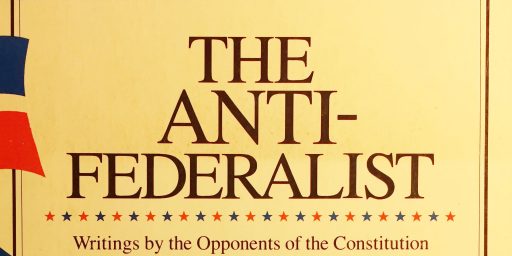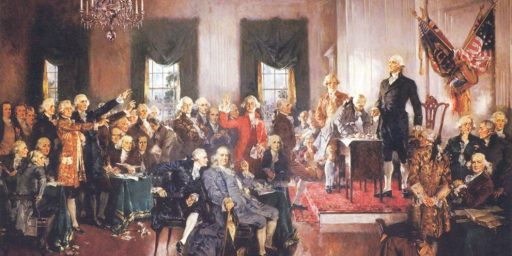Egyptian Constitution Reform Committee Set to Report
The Constitutional Reform Commitee has finished its work and will report its recommendations to the military.
 With the dramatic events in Libya, attention has understandably shifted to Egypt’s west, however the process in Egypt is by no means over and a key landmark is about to be reached.
With the dramatic events in Libya, attention has understandably shifted to Egypt’s west, however the process in Egypt is by no means over and a key landmark is about to be reached.
Ahram online reports: Committee drafts constitutional amendments.
The Constitutional Reform Committee has finalized its recommended amendments to the constitution and will present them to the Supreme Council of the Armed Forces within hours.
The committee has amended eight articles from the 1971 constitution, including reducing the presidential term from six to four years. The committee, headed by Tarek El-Bishry, former first deputy of the Council of State, was appointed by Field Marshall Mohamed Hussein Tantawi, head of the Armed Forces, to amend the Constitution before the presidential elections.
The article has a run down of the proposed amendments, which are supposed to go to the voters for approval. The key immediate changes affect the presidency, which makes sense, but the degree to which this represents a deep and major reform to the Egyptian state is rather unclear.
In regards to the presidency, the proposal shortens the term (six years to four) and installs term limits (two total). It also opens up the process to become a candidate, although whether it is adequate remains to be seen.
The basics include shortening the presidential term, detailing a process to allow candidates to run for the office and a curtailment of the emergency powers of the president. On that point:
Article 148:
The president has the power to announce a state of emergency. This announcement must be presented to Parliament within 15 days for it vote on its validity. The state of emergency can only be for a specific period and cannot be extended without the consent of Parliament.
Amendment: The state of emergency will be for six months only. The president will be asked to announce a state of emergency only after Parliament has approved the decision. The period can only be extended after a national referendum is held.
Now, limiting that action to six months is an improvement (especially when one considers the current state of emergency was been in place since 1981). However, this does not say anything about limiting emergency powers.
My first reading is that there is not enough here about parties and elections (indeed, about parliament itself in general). There is a shift in terms of giving independent judges the right to oversee elections, but it is fairly vague.
My initial reaction to this entire process is that I can see this as a short term fix, but still think that if Egypt is really going to move in a seriously democratic direction it is going to need something along the lines of an elected national constituent assembly to right a wholly new constitution. Tinkering with the old authoritarian document mostly on the edges is unlikely to do the trick. If anything, the continued focus on the presidency is missing the fact that democratization requires focus on the totality of the state and not just on one institution.






We in the US forget how lucky we are in having the men we had forming our government in the late 18th century.
It’s one thing to write a constitution — the Soviets had one — it’s another thing entirely to have the men and institutions to make it more than a piece of paper.